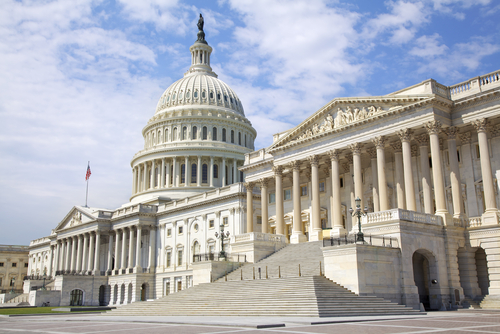U.S. Sen. Ron Wyden (D-OR) introduced draft legislation to close loopholes that allow wealthy investors and large corporations to use pass-through entities, primarily partnerships, to avoid paying higher taxes.

Wyden’s bill would remove the complexity that exists in current partnership rules by closing certain loopholes. By closing these loopholes, an additional $172 billion would be generated in taxes, according to the senator’s office.
“The constant theme running through our tax code is paying taxes is mandatory for working people, but optional for wealthy investors and mega-corporations. That’s especially true when it comes to pass-through businesses and partnerships, the preferred tax avoidance tools for those at the top,” Wyden, chair of the Senate Finance Committee, said. “On the one hand, the rules are too complex for working people who don’t have armies of lawyers and accountants. On the other hand, complexity allows the wealthiest individuals and most profitable corporations to decide when, and whether, to pay taxes at all.”
“This proposal simply reduces complexity by closing loopholes that allow those at the top to pick and choose when, and whether, to pay tax. Raising more than $172 billion for priorities like childcare and paid leave by closing off these loopholes is a no-brainer,” he added.
Wyden said the partnership tax rules afford lots of flexibility in the allocation of partnership income and losses among partners. This bill would seek to remove options to decide when and whether to pay tax. This would simplify administration and curtail abuse.
“These proposals are directed to the major areas of abuse or ambiguity in the partnership law dealing with allocations by a partnership to a partner, basis adjustments of partners, and liabilities allocated to partners for tax basis and disguised sale purposes and should help the IRS in auditing more partnerships in an efficient manner. The IRS is behind the curve in terms of auditing partnerships and applying the complex partnership tax law to them, and these proposals will provide much needed simplification to help improve the overall effectiveness of the tax law. Although some flexibility in applying the partnership rules will be curtailed or eliminated, this was a necessary effect of the simplification of the provisions. Sufficient regulatory authority is granted to the Treasury and IRS in the proposals to help interpret and apply the new provisions in a fair and balanced manner to taxpayers who are partners in partnerships,” Monte Jackel, Of Counsel Leo Berwick, who reviewed these proposals in his personal capacity, said.